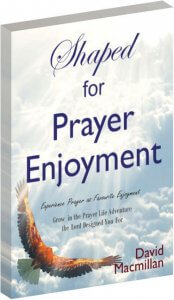We’re not always in the mood for singing, but our choice to unmute the song of praise says a lot about our view of the Lord, especially in the harder parts of our life-journey.
As Job mourned in the ashes of yesterday’s fire, perhaps Eliphaz was watching the burning logs in his friend’s hearth when he remarked: as a fire releases sparks, so life produces troubles (Job 5:7).
Christ warned his followers: In this world you will have trouble (John 16:33). Then he added this truth about himself to give them peace in a world of unrest: I have overcome the world.
The Overcomer is with us in our journey, but permanent trouble-free living will only be ours once we are finally Home with him. Then, constant praise will be the norm.
But what about now? Can we unmute the song of praise when trouble is close and loud?
The psalmist, David, was facing life-threatening crises when he sang: The righteous person may have many troubles (Psalm 34). It’s his next line that has us scratching our heads: but the Lord delivers him from them all. To assure us he didn’t misread his song line, he repeats it (Ps 34:17, 19).
David knew that God’s people aren’t given a ‘get out of trouble’ card. Some of those listening to his song were brokenhearted, or felt crushed by their circumstances (18). He himself had quite an extensive file of personal troubles. Some were past while others were ongoing.
Yet, he resolved to unmute the song of praise to the Lord: I will extol the Lord at all times; his praise will always be on my lips. And he called others to join him, people facing their own share of troubles (Ps 34:1-2).
Our natural reaction to unpleasant happenings is complaint or panic (or both). The Lord supernaturally helps us to worship (when ‘hanging our harp on a branch’ would be easier, Ps 137:2). He draws us to truth(s) about himself, and enables us to unmute the song of praise, even if our emotions are initially too tired or raw to join the celebration.
But why did David sing that the Lord delivers from them all?
David lived in awe of God’s greatness. He knew the Lord’s plans stand firm, even in the severest storm (Ps 33:11). The outworking of his plans doesn’t depend on a trouble-free environment. He not only keeps his plans on track despite the storm, but can advance them because of it. It would be nice if the Lord always rescued us from encountering trouble, but sometimes delivering us IN the trouble (from being overwhelmed by it) serves his plan more.
The psalmist gives an example of that immediately after his, delivers from them all line (19). He sings prophetically of the suffering Messiah: he protects all his bones, not one of them will be broken (20). The Father’s protection of Christ’s bones from being broken on the cross was a verifying sign of the promised Passover lamb (Jn 19:36, Ex 12:46). Christ’s suffering and death served the Father’s plan; breaking his bones didn’t.
We face many of the same difficulties as those not yet in Christ. But, when we go through a passage of trouble, we have the Overcomer present to help us, mould us through it, deliver us from Dark intent, and ensure that the outcome will serve his plans for our good and his Glory.
In his song, David touches on at least four truths about the Lord that feed his unmuted song of praise. Read through Psalm 34, note the reasons, then take one each day as your prayer focus over the next week. Draw in supporting scriptures, and enlarge your praise around that truth of the Lord. From it, write a short refrain (one or two lines) as your unmuted song throughout the day.




